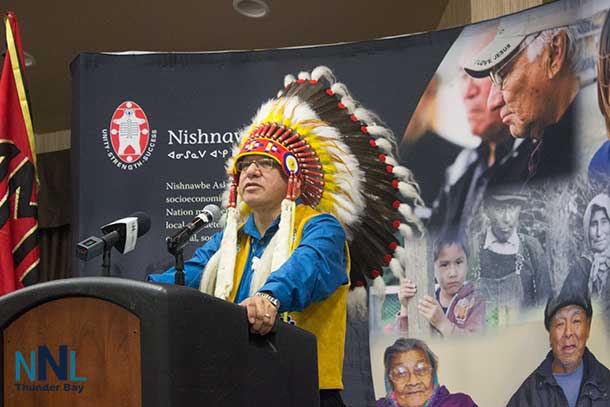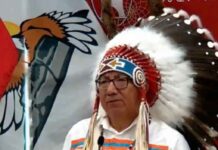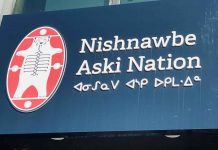
THUNDER BAY – Nishnawbe Aski Nation (NAN) Grand Chief Harvey Yesno says the revelation that Indian and North Affairs Canada has withheld more than $1 billion in social services funding over the past five years, so-called lapse spending, sends the wrong message to First Nations at the conclusion of the Truth and Reconciliation Commission.
“It is very discouraging that just days after the Truth and Reconciliation Commission called for more resources to help survivors, families and communities recover from the abuse inflicted through the Indian Residential School system it now appears that the government is withholding massive amounts of funding that should be spent on much-needed services,” said NAN Grand Chief Harvey Yesno, a residential school survivor who attended ceremonial events in Ottawa this week. “With the conclusion of the TRC First Nations are looking for the federal government to move from apology to action by addressing the multi- generational impacts of the Indian Residential School system. It is difficult accept that this government is committed to reconciliation when it is withholding so much funding.”
Social services are just some of the shortfalls in federal assistance to NAN’s 49 First Nations, especially remote communities, which continue to suffer chronic shortages in infrastructure, housing, health care and education. According to Health Canada, as of February 2015, there were 139 Drinking Water Advisories in effect in 92 First Nation communities. Thirty-five of these are in NAN First Nations.
In his Spring 2015 report, the Auditor General of Canada found that Ottawa is failing in the delivery of health care by not ensuring that First Nations people in remote communities have access to clinical and client care services comparable to other provincial residents in similar geographic locations.
NAN has also called for substantial restructuring of the flawed federal Nutrition North food subsidy program, of which only eight of NAN’s 32 remote communities receive the full subsidy and just seven receive a partial subsidy.
“The Government of Canada has a historical opportunity for nationwide reconciliation with First Nations, but a sincere commitment backed by action will be needed if we are ever going to repair this relationship,” said Grand Chief Yesno. “First Nations will no longer accept second-class citizenship and the denial of basic human rights like access to clean drinking water. We look to this government to make a clear commitment to enter into meaningful engagement with NAN First Nations based and the spirit and intent of our Treaties.”
NAN has called on the Government of Canada to renew its Treaty relationship with First Nations, respect Aboriginal and Treaty rights, and support communities through mutually beneficial agreements that ensure the wealth from the extraction of natural resources benefit First Nations as full Treaty partners.




